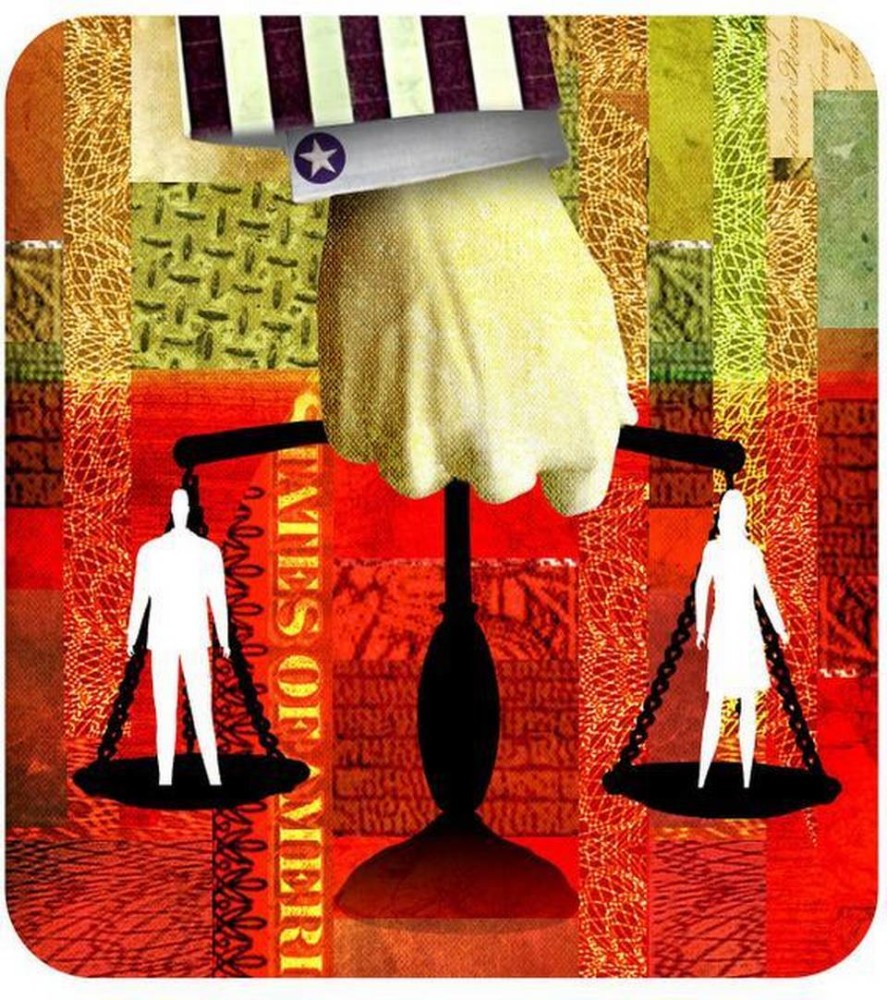By Elyssa Cherney
Orlando Sentinel.
WWR Article Summary (tl;dr) A new survey released Friday by the Florida Bar reveals more than one quarter of women surveyed said they resigned from a position due to a lack of advancement opportunities, a lack of work-life balance or the general insensitivity of coworkers or supervisors. The report, which is being heralded as the first of its kind in recent memory, coincides with Women’s History Month in March, a time of year with an extra focus on women in leadership and the empowerment of women.
Orlando
Orlando attorney Karen Persis recalls when a judicial candidate approached people at a professional cocktail party and handed out flyers, but only to men, before telling everyone else, “Well, I guess you vote, too.”
And Chelsea Vanadia, a partner in her own real estate law firm, says people sometimes assume she is a secretary or paralegal when they come in the office.
Scores of the state’s other young female attorneys recounted experiences of gender bias, from insensitive, off-hand comments made by colleagues to sexual discrimination and harassment, in a new survey released Friday by The Florida Bar.
The report, which is being heralded as the first of its kind in recent memory, coincides with Women’s History Month in March and comes amidst The Florida Bar’s efforts to improve the field for female attorneys who are just starting out.
“I think people are fed up,” said Persis, 36, who is currently on maternity leave from her own practice. “It’s gotten to the point where you are not just seeing this in law, but in a lot of other areas of our society where women are being looked at in a different light.”
According to The Florida Bar, 43 percent of the survey’s 465 respondents reported facing gender bias during their careers and shared anecdotal tales of the problem.
The survey, which was emailed out to a random sample of 3,137 women in the organization’s Young Lawyers Division, garnered a response rate of 15 percent, which is considered good by reporting standards, according to a spokeswoman.
More than one quarter of women surveyed said they resigned from a position due to a lack of advancement opportunities, a lack of work-life balance or the general insensitivity of coworkers or supervisors.
Another key finding was that 21 percent of respondents said they felt they were not being paid comparatively to their male counterparts.
Attention to the issue grew after The Florida Bar Young Lawyers Division heard the sentiments repeated at an annual meeting in February, according to YLD President Gordon Glover, who practices in Ocala and The Villages.
In response, the organization created the Commission on Women in the Profession, which organized the survey.
“It was disheartening,” Glover said in a statement. “I was not expecting those sorts of results, with it being 2016. I didn’t personally think that a lot of the issues that showed up on the survey are taking place and they are.”
There are nearly 26,000 young lawyers registered with The Florida Bar — more than 12,000 of which are women, according to organization leaders. “Young lawyers” are defined as attorneys under age 36 or who are in their first five years of practice in Florida.
For many, including Bar President Ramón Abadin, some of the most compelling information came from the dozens of comments submitted with the survey.
In the 90 pages of anonymous comments, one women reported being told by a supervisor at her first job, “I should have never hired a women.”
Another said that a partner began almost every conversation with her by stating, “Now, don’t call the gender police.”
Other women said they were referred to by other attorneys and judges as “Blondie” or “Little lady lawyer.”
Difficulty balancing work-life responsibilities also emerged as a theme in the survey with 42 percent of respondents citing that challenge.
“I’ve often been asked what are my child-care arrangements, the general health of my child, and if I have grandparents helping me with the child so that I could work late,” one woman wrote.
Abadin said the comments, in particular, have catapulted the issue to his immediate attention.
“It is not appropriate for any lawyer, regardless of gender, to be made to feel diminished or disrespected by a colleague, a client or a member of the court,” Abadin wrote in an open letter to Florida attorneys in response to the survey.
“No lawyer, male or female, should feel forced to choose between family and career, or be penalized for trying to balance work and home, just as no law firm should place unfair expectations on its young attorneys.”
Vanadia, 28, who works in Lake Mary, said she considers herself lucky because she doesn’t have any gender discrimination “horror stories.” She attributes that to her working at a more flexible, smaller firm and not a larger company.
Persis, the new mother, worked in bigger firms before leaving to start her own practice that specializes in surrogacy, assisted reproductive technology and adoption law.
The encounter with the judicial candidate, who she would not name but said won election in Central Florida, continues to stick with her.
“It was just so brazen and so obvious,” she said. “There are probably people who feel that way and aren’t so obvious about it …it’s just shocking.”














































































































































































































































































































































































